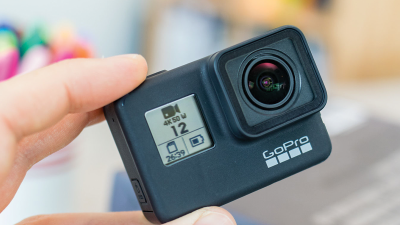Cyberattacks and phishing scams are everywhere nowadays. They’re a constant reminder of the threat posed by unscrupulous hackers who, given the chance, will try to clone your personal details or steal your money. These risks to our personal security have spawned a number of defensive technologies like password protectors and VPN networks. But for many types of fraud, these measures simply aren’t effective.
44% of ID fraud actually happens offline, typically when someone loses their purse or wallet, which means however savvy consumers are, they need to be just as vigilant in the real world as they are online. Here are some useful tips for protecting your personal details from the most common offline scams, as well as what to do if you’re a victim of identity theft.
RFID digital theft:
Wallets and purses contain plenty of personal information that fraudsters can use to steal your identity. Most of the time, scammers are able to get a hold of these details when someone misplaces their wallet. But there are other ways for criminals to get their hands on them. One way is through a form of digital pickpocketing that’s become increasingly common in towns and cities: skimming.
This crime takes advantage of RFID, digital technology millions use to make contactless payments. Contactless works using high-frequency radio waves to transmit data between your card and the card reader, and scammers are able to use this to their advantage by secreting card readers in their pockets. They can then read your card details and make a fake card to go shopping with your money or charge you £30 without you knowing.
If you’re worried about this type of fraud, there are ways to protect yourself against it. The easiest method is investing in an RFID-blocking wallet or purse. These items are designed to deflect the high-energy frequencies transmitted by card readers to keep your details safe and prevent scammers from fraudulently charging you money.
Postal theft:
When it comes to personal details, your post is a veritable treasure trove for criminals. Every piece of mail can potentially hold crucial details that they can use to impersonate you and make transactions in your name.
This type of fraud is particularly sneaky as it can take months for the bills to turn up. By which time, the thieves who stole your identity have already made off with the money and left you in debt.
To stop fraudsters from piecing together your financial information using your letters, never put entire bills, bank statements or receipts in the bin. Instead, use a shredder or ID-protection stamp to scramble your sensitive information before disposing of it. You can also install a post box or a cowl visor guard to secure your home and prevent criminals from stealing your post or prying into your home.
Vishing:
Vishing, a portmanteau of voice phishing, is a type of fraud committed over the phone where criminals try to uncover your personal details by pretending to be a representative of a reputable organisation like a bank or credit card company.
The scammers use cunning ID-spoofing tricks that take advantage of VoIP services to falsify their details before making a call. This means that when you receive a call, the number or name displayed by your phone could be faked. It’s also how they convince victims the call is genuine.
The representative of the bank or credit card company will then use what’s called ‘social engineering’, the technical term for manipulating someone into doing something against their better judgement, to persuade the target of the scam to reveal sensitive information so they can steal their money, identity or both.
Vishing scams can be convincing, but it’s important to remember that your bank will never ask you to divulge your account details, pin number or password over the phone. If they ask you to provide any information you feel uncomfortable with sharing, simply hang up, wait a few minutes and then call the number on the back of your credit card or bank statement to verify the call.
Research conducted this year found that identity theft has affected one-quarter of UK consumers, so it’s important to make sure you’re protected against these sorts of crimes. If you think you’re a victim of identity theft, you should:
- Report any missing documents to the organisations that issued them
- Inform your bank of any unusual activity
- Make a statement to the police
- Apply for protective registration with CIFAS, the UK’s fraud prevention service
























[…] The increasing growth of phishing attacks poses a significant threat to all enterprises and firms. All organizations must know how to identify some of the most common phishing scams. Following is a list of six common types of phishing attacks along with useful tips on how organizations can defend themselves how you can protect your identity. […]